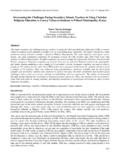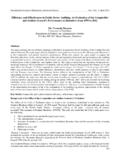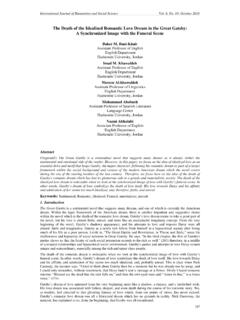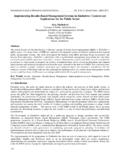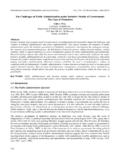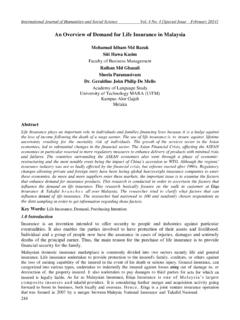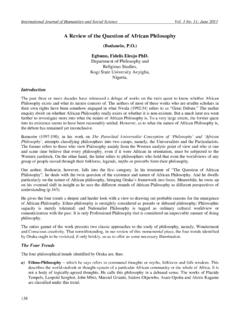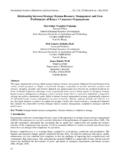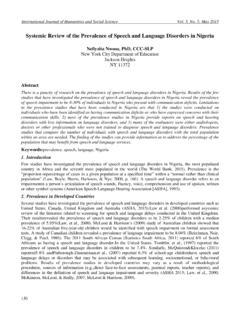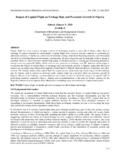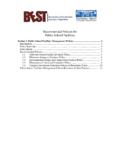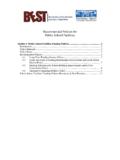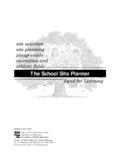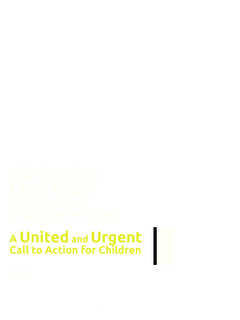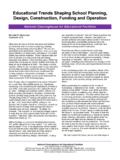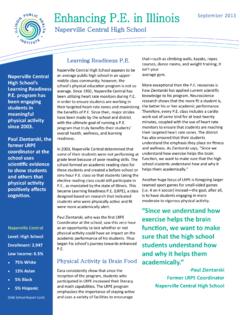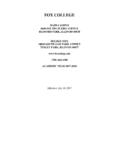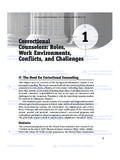Transcription of School Management and Students’ Academic …
1 International Journal of Humanities and Social Science Vol. 4, No. 9; July 2014 86 School Management and students Academic performance : How effective are Strategies being Employed by School Managers in Secondary Schools in Embu North District, Embu County, Kenya? Jackline Tabitha Nzoka Doctorate student Department of Educational Management Policy and Curriculum Studies School of Education Kenyatta University Kenya Professor John Aluko Orodho Associate Professor Department of Educational Management Policy and Curriculum Studies School of Education Kenyatta University Kenya Abstract This study sought to analyze the strategies School managers apply to improve Academic performance of students in schools under free day secondary School education in Embu District, Embu County, Kenya.
2 The study was guided by the Capital School Effectiveness and Improvement Theory based on various interrelated variables such as outcomes, leverage, intellectual capital and social capital. A descriptive survey research design was adopted. A combination of purposive and stratified random sampling techniques were utilized to draw 54 members of the Board of Management (BoM), 45 heads of departments and 36 members of Parents Teachers Association (PTAs) yielding to a sample size of 135 subjects to participate in the study. Mixed methods were used to collect quantitative data from teachers using questionnaires and qualitative data from heads of departments and members of PTA using interviews.
3 It was established that School managers used various strategies to improve students Academic performance . The strategies included: inconsistent monitoring of instructional processes and student assessment; subsidizing Government funding through free day secondary education using income generating activities; and uncoordinated guidance and counseling programmes. Despite these efforts, the expected improved students Academic performance was not realized due largely to the fact that most School managers had not undergone Management skill training. Hence, since managers who are conversant with Management practices would be more worthwhile partners of the Government of Kenya in the implementation of policy, it was recommended that School managers should undergo intensive leadership training on all aspects of School Management for enhanced students Academic performance to be realized (253 words).
4 Keywords: Management strategies, improved Academic performance , Secondary schools, Embu North District, Embu County, Kenya Introduction Background to the Study There is a growing body of literature from researchers and educationists which have made an attempt to examine the relationship between education Management and students Academic performance (Orodho, 2014; UNESCO, 1999; United Nations, 2013; Waweru & Orodho, 2014). The results reveal rather spurious relationship (Waweru & Orodho, 2014). Center for Promoting Ideas, USA 87 However, what is clear is that educational Management in secondary schools involves the application of Management principles in designing, developing and effecting resources towards achievement of educational goals (Okumbe, 2001).
5 This effectiveness according to UNESO (2009) is judged by the extent to which schools generally meet the expectations of the society within which they are established. Since independence, the Kenyan government has demonstrated commitment to the provision of quality secondary School education through allocation of financial resources, provision of trained teachers and establishment of quality assurance department (Republic of Kenya, ). According to Ohba (2009), shortage of teachers, lack of basic facilities, community interferences, poor teaching methodology and administrative related factors such as poor Management of School resources have been noted as some of these factors.
6 Embu North District has a total of 24 public secondary schools, 7 boarding and 17 day schools. The performance of schools under FDSE in Embu North District Embu County has been an average of D+ from 2007-2011 (KNEC, 2012). This is a failure because the graduates of this grade do not qualify in most careers for further education and training (Kenya National Examinations Council, 2014). It is apparent that various intertwined factors could be responsible for this poor performance in the district. This background prompted the undertaking of this study on Management strategies applied to enhance students Academic performance in schools under FDSE in Embu North District, Embu County, Kenya.
7 State of Art Review Literature related to School based strategies employed by School managers to improve students Academic performance has revealed mixed and contrasting range of results (Croninger & Lee, 2001; Zepeda, 2004; Fullan, 1991; Lamb, 2007 ; Waweru & orodho, 2014; World Bank, 2008). Croninger and Lee (2001) reported that the degree of teacher caring and interaction with students reported by both parents and teachers has a significant impact on performance . In a review of effective schools in the US, Croninger and Lee (2001) found evidence that schools with a common sense of purpose and strong communal organization involving collegial relationships among staff and positive adult student relationships are efficient in promoting a range of Academic and social outcomes reflecting students ' engagement and commitment.
8 There are factors that researchers and School systems point when describing quality schools and features of schools that have improved in effectiveness. According to Zepeda (2004) and Fullan (1991), such features include: Commitment to success for all; flexibility and responsiveness; Shared vision; climate of challenging and stimulating teaching; strong and fair disciplinary climate. According to Lamb (2007), the most effective programmes were: foster connectedness; increasing the trust placed in students ; Provide tasks with immediate tangible benefits; Make spaces within schools and curricula for diverse student needs.
9 Principals in schools achieving high retention rates and good performance , Socias, Dunn, Parrish, Muraki and Woods (2007) were clear that these implementations should not be ad hoc. World Bank (2008) posits that much research has demonstrated that retention and the quality of education depends primarily on the way schools are managed, more than the abundance of available resources, the capacity of schools to improve teaching and learning is strongly influenced by the quality of the leadership provided by the headteacher. Concerted effort to improve School leadership is one of the most promising points of intervention to raise retention, the quality and efficiency of secondary education across Sub-Saharan Africa.
10 In South Africa, leadership training for secondary School heads was to improve quality of Education. Senegal's Improvement Plans (SIP) created in 1996, encourage enterprenoual skills of headteachers to find funding for School projects that enhance educational quality. In Kenya, all headteachers are currently undergoing a Management course at the Kenya Management Institute (KEMI) to improve on their Management skills (Republic of Kenya, 2012a). UNICEF (2000) in Latin America, a study that included 50,000 students in grades three and four found that children whose schools lacked classroom materials and had an inadequate library were significantly more likely to show lower test scores and higher grade repetition than those whose schools were well-equipped (Willms, 2000).
